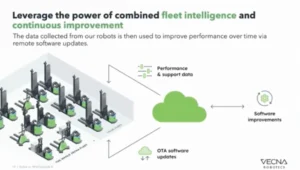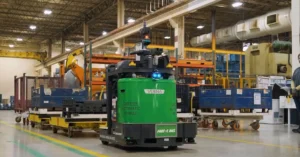GATS 2019: How Digitization Is Putting Trucking in the Fast Lane
While the ways people shop and trade have changed markedly through digitization, the way products move from seller to buyer largely has not.
This may be changing soon though, based on the developments of the transportation industry.
The Great American Trucking Show concluded in Dallas this week, and the event hosted more than just the latest engines and wheels.
“The trucking industry has become much more sophisticated in knowing what various technologies they can incorporate to their operation to become much more streamlined, more efficient, handle more comprehensive, sophisticated operations,” Paul Till, Sales Manager at PCS Software said. “So, the need for advanced technology is really on the forefront of the minds now in the industry.”
With more deliveries on the road than any time in history, it is critical that transportation companies create efficient routes and systems to stay ahead of the competition. However, in an industry that is undergoing rapid change for the first time in generations, they must invest in themselves with one eye on the future.
“Technology is a tool. I think the challenge for most transportation companies is finding that right tool that fits their operation. And it’s just not about what the needs of today are, its about being forward moving,” Till said.
The possibility of autonomously-driven trucks could revolutionize human roles in the industry and lead to a further need for technological savvy in the world of trucking. Progress in this area is only increasing, and the decisions trucking companies make could change the industry for the foreseeable future. These changes will not only impact truck drivers and logistics professionals but consumers and sellers as well.
Technology is a Tool
The Outlook of the Industry
Streamlining Operations








